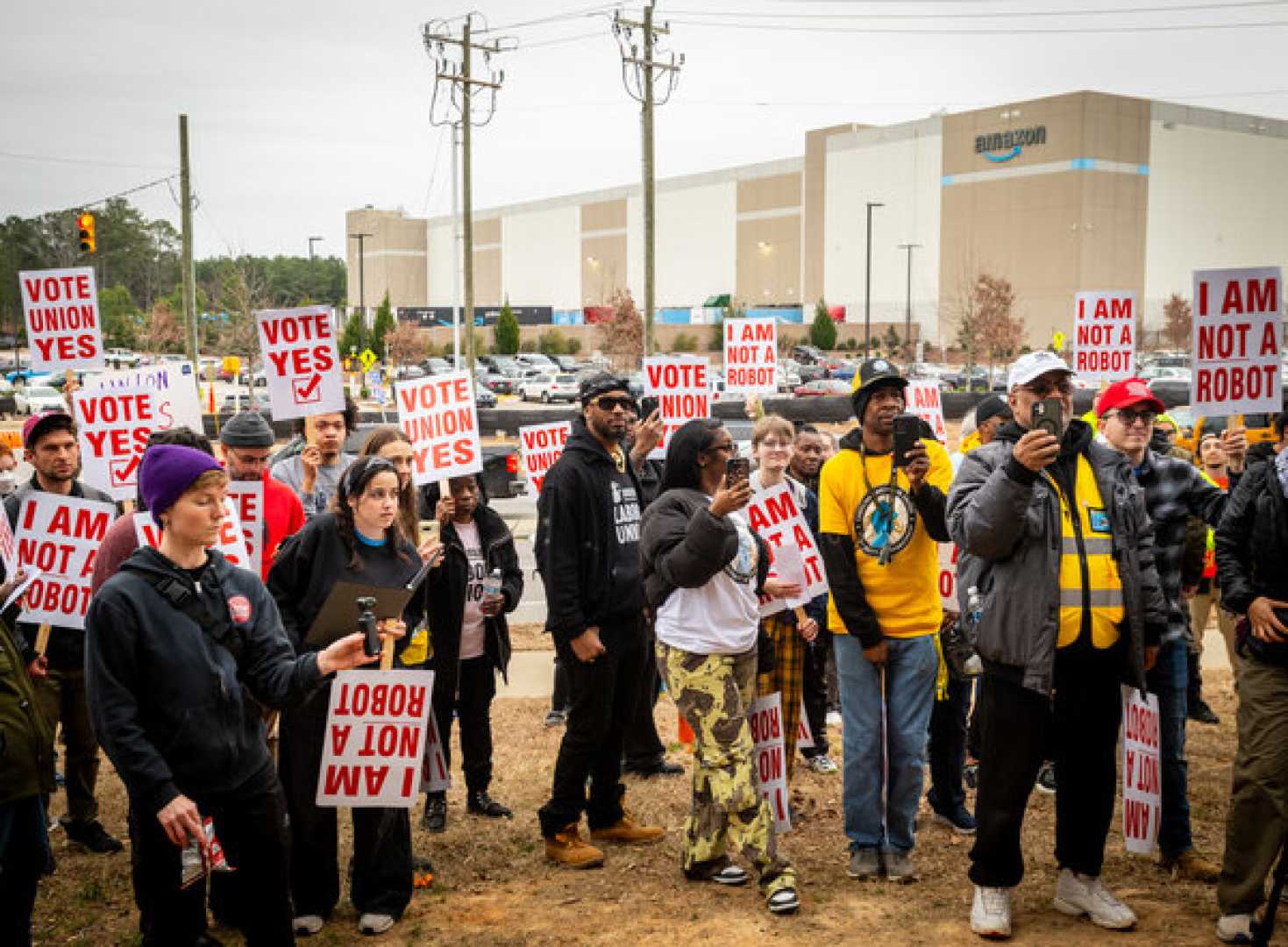Business
Amazon Workers Reject Union in Major Setback for Labor Movement

RALEIGH, N.C. — In a significant setback for labor organizing efforts, Amazon workers at a warehouse in Garner, North Carolina, overwhelmingly voted against forming a union. The election results, announced on Saturday, revealed that 2,447 workers rejected the grassroots union Carolina Amazonians United for Solidarity and Empowerment (CAUSE), while only 829 voted in favor.
The union election, held from February 10 to February 15, involved approximately 4,300 workers at the facility, which opened in August 2020. The National Labor Relations Board (NLRB) reported that 3,276 valid votes were cast, with 77 ballots challenged and another 10 voided.
Union proponents had aimed for better working conditions, including higher wages and more reliable hours. Additionally, CAUSE accused Amazon of obstructing the election process, claiming the company engaged in illegal union-busting tactics.
“The election results today are a result of Amazon’s willingness to break the law and use its enormous wealth to try and break our movement,” CAUSE stated following the announcement. The grassroots organization insisted it would persist in organizing efforts, as many employees continue to experience food and housing insecurity.
Eileen Hards, an Amazon spokesperson, expressed satisfaction with the outcome, stating, “We’re glad that our team in Garner was able to have their voices heard, and that they chose to keep a direct relationship with Amazon.” She emphasized the company’s commitment to maintaining a positive work environment and highlighted benefits that Amazon claims exceed those offered by unions.
The Garner vote underscores Amazon’s history of defeating unionization efforts. Notably, the company has successfully warded off organizing attempts at multiple facilities, including in Bessemer, Alabama, and Staten Island, New York. In both regions, unions failed to secure enough support to establish formal representation.
Amazon employs more than 1 million people in the United States, making it the second-largest private employer in the country. In 2024, the online retail company reported a net income of $59 billion, nearly double from the previous year. Despite the company’s promising financial success, employees in Garner argued that current wages—ranging from $18.50 to $23.80 per hour—are insufficient in the area’s high-cost market.
“I would challenge anyone to say $20 an hour is a livable wage here,” said Italo Medelius-Marsano, one of the leading voices for the union. “In the Raleigh area, that’s a slap in the face. Given the profits at Amazon, $30 an hour is incredibly reasonable.”
Labor advocates highlighted North Carolina’s historical resistance to union efforts, with only 2.4% of workers being union members statewide. Factors contributing to this landscape include a powerful Chamber of Commerce and a cultural bias against unionization, akin to other right-to-work states.
Despite the defeat, CAUSE leaders remain determined. “I already knew that history wasn’t on our side,” said Rev. Ryan Brown, CAUSE’s president and co-founder, after the voting concluded. “I had braced myself for this loss, recognizing that the probability and the odds were against us.”
Labor analysts note that the recent organizing attempts in North Carolina reflect a growing trend among workers advocating for change, particularly in the post-COVID landscape, where many essential workers began to demand better treatment.












